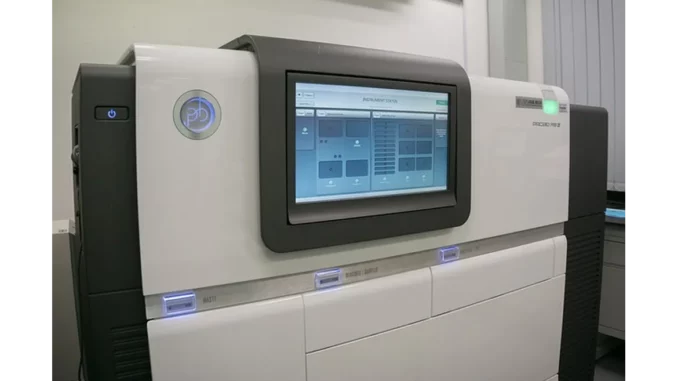
Upon meeting Dr. Emily Harrington at a lively café in central London, her fervour for the field of genomics was immediately apparent. As a seasoned independent analyst with extensive experience, Dr. Harrington possesses an acute understanding of the complexities and innovations propelling the Whole Genome and Exome Sequencing Market. Our discussion delved into the market’s current dynamics, its key players, and the promising future of this transformative industry.
Healthcare data growth can be overwhelming scale effortlessly with TrueNAS by Esdebe.
Dr. Harrington commenced by providing an overview of the market’s trajectory. “The whole genome and exome sequencing market is experiencing significant growth,” she remarked, her enthusiasm evident. “Valued at USD 1.91 billion in 2023, it is projected to more than double, reaching USD 4.01 billion by 2029, with a compound annual growth rate of 13.32%.” This impressive expansion is largely driven by advancements in genomic research and the increasing adoption of precision medicine. Technological progress, especially in next-generation sequencing (NGS) platforms, has enhanced the efficiency and accessibility of sequencing. “These innovations have drastically reduced costs and expanded the applications of sequencing in clinical diagnostics and personalised medicine,” she noted with a sense of optimism.
Our conversation naturally transitioned to the major players steering this market. Dr. Harrington offered a thorough analysis of the leading contributors. “Thermo Fisher Scientific, Illumina, and Roche are at the forefront,” she explained. These companies are not merely providers of sequencing technologies but are also actively engaged in research collaborations aimed at developing targeted therapies. Illumina, for instance, is acclaimed for its pioneering NGS technologies, which have set industry benchmarks. “They have been instrumental in making genome sequencing more accessible and cost-effective,” Dr. Harrington stated. “Their platforms are extensively utilised in both clinical and research settings, facilitating the integration of genomic data into patient care.”
Thermo Fisher Scientific, she continued, distinguishes itself with a comprehensive suite of genomic solutions catering to various market needs. “Their strength lies in their wide-ranging product offerings, including instruments, reagents, and software that support genomic applications across diverse sectors.” Meanwhile, Roche, with its storied history in diagnostics, is leveraging its expertise to solidify its presence in genomics. “They are investing significantly in research and development to enhance their sequencing capabilities,” she observed. “Roche’s emphasis on personalised healthcare is in perfect alignment with the market’s shift towards precision medicine.”
Despite the market’s promising growth, Dr. Harrington was quick to highlight the challenges confronting the industry. “Initial setup costs, data privacy concerns, and ethical issues present significant hurdles,” she noted thoughtfully. Yet, these challenges also open avenues for innovation, particularly in creating secure data management solutions. She elaborated on the pivotal role of government and private investments in surmounting these obstacles. “Globally, governments are recognising the potential of genomics in addressing unmet medical needs. Initiatives such as the U.S. Precision Medicine Initiative are crucial in promoting research and encouraging the broader application of sequencing technologies.”
From a regional perspective, North America, particularly the United States, currently dominates the global market. “The U.S. benefits from a robust healthcare infrastructure and the strong presence of major sequencing technology providers,” Dr. Harrington explained. “This, combined with a solid regulatory framework and support for genomic integration into clinical practice, positions North America as a leader.” However, she acknowledged the growing contributions from other regions. “Europe and Asia-Pacific are making significant strides,” she said. “Countries like China and India are investing heavily in genomic research, which will undoubtedly influence future market dynamics.”
As our conversation concluded, Dr. Harrington shared her vision for the future of the whole genome and exome sequencing market. “The integration of sequencing technologies into mainstream healthcare is inevitable,” she asserted. “As costs continue to decrease and technology advances, we will witness an expansion of clinical applications that will revolutionise patient care globally.” She paused, a thoughtful expression on her face. “The market is poised to play a transformative role in healthcare and life sciences. It is no longer just about sequencing; it is about harnessing genomic data to drive innovation and improve patient outcomes.”
Leaving the café, I was left contemplating the immense potential and profound impact of the whole genome and exome sequencing market. Dr. Harrington’s insights offered a captivating glimpse into a future where genomics plays a crucial role in reshaping the healthcare landscape, providing hope and solutions to countless individuals across the globe.


Be the first to comment